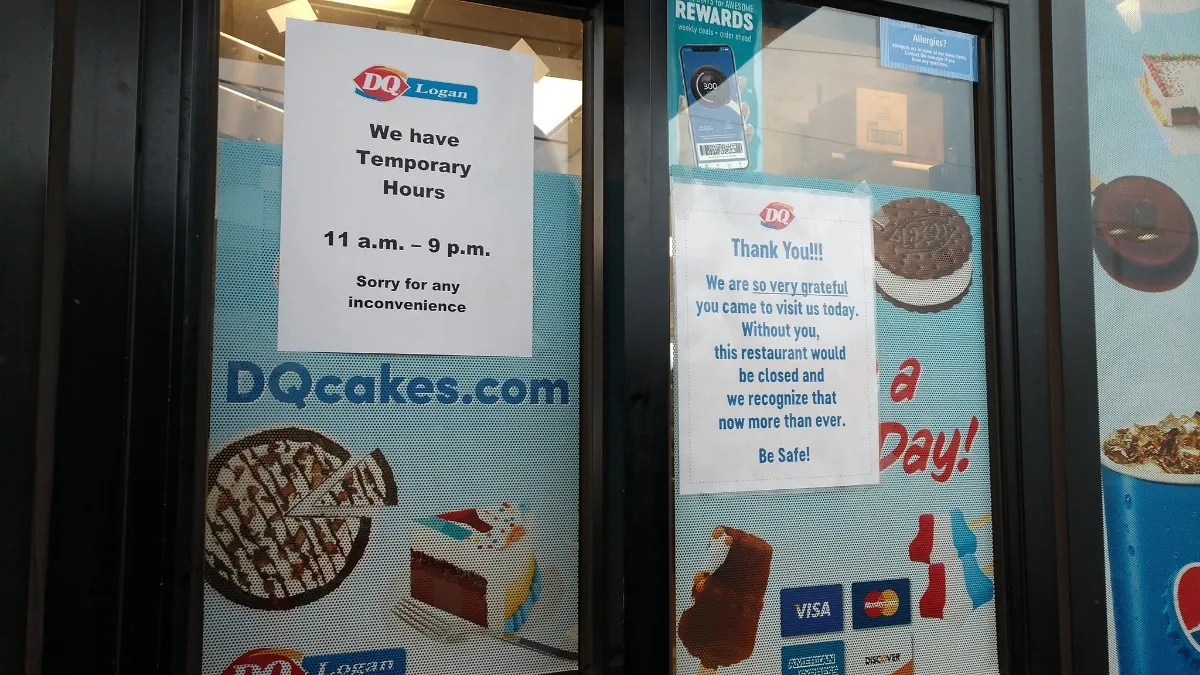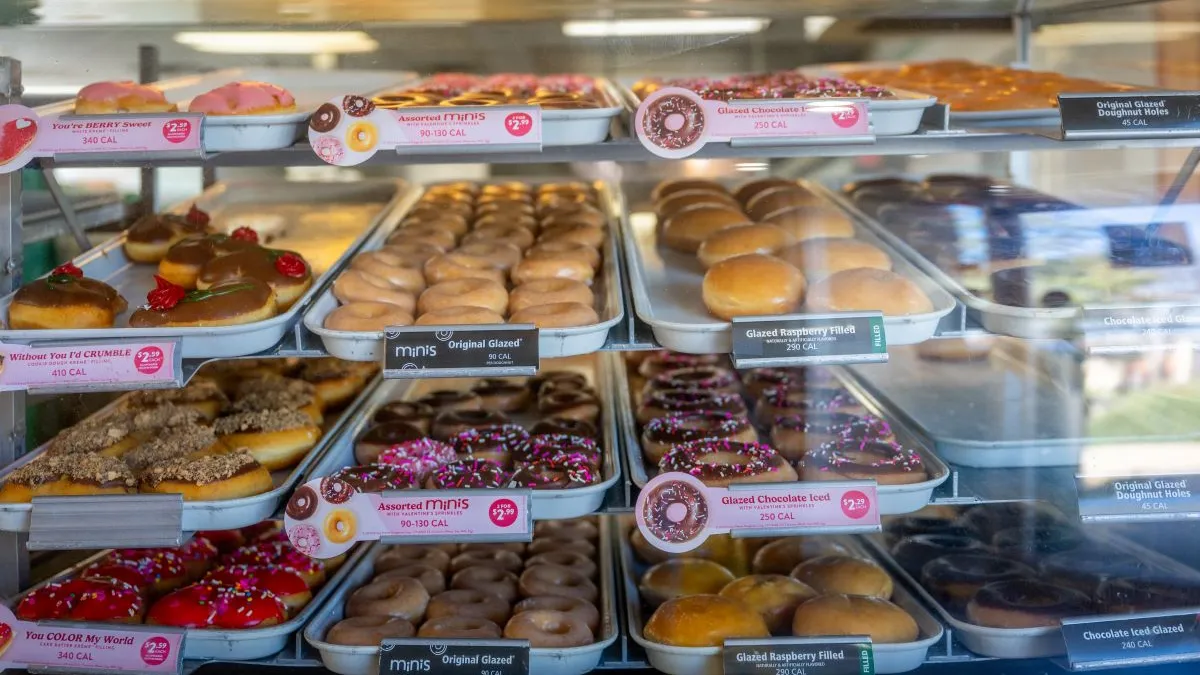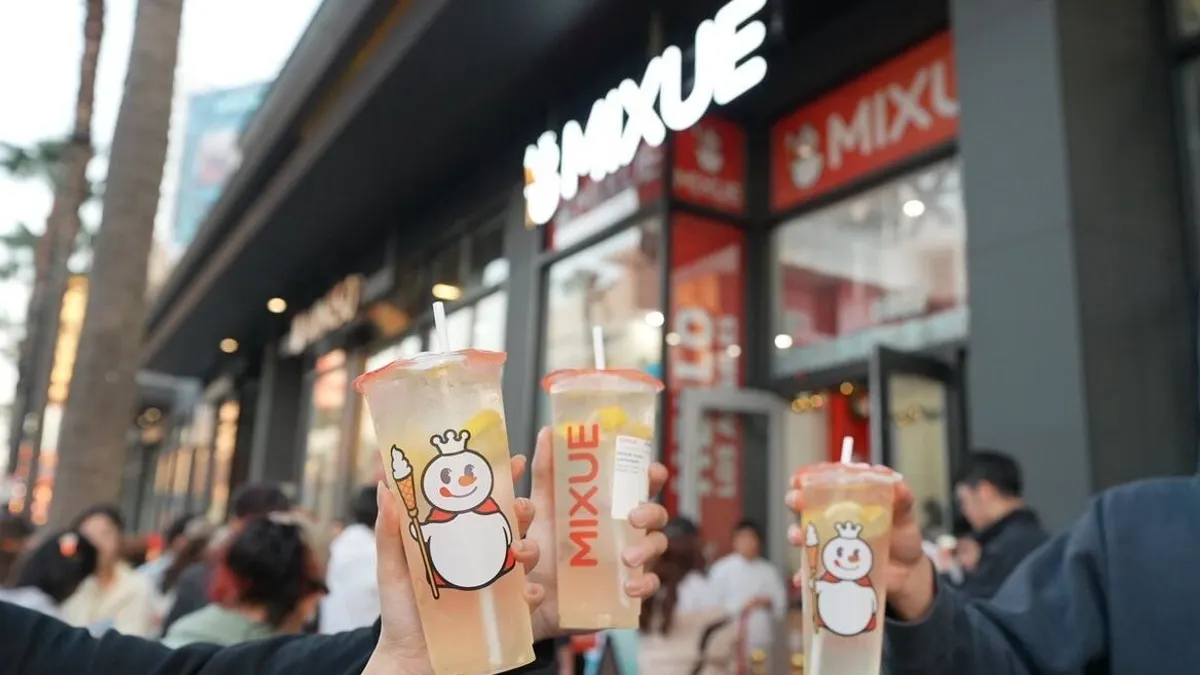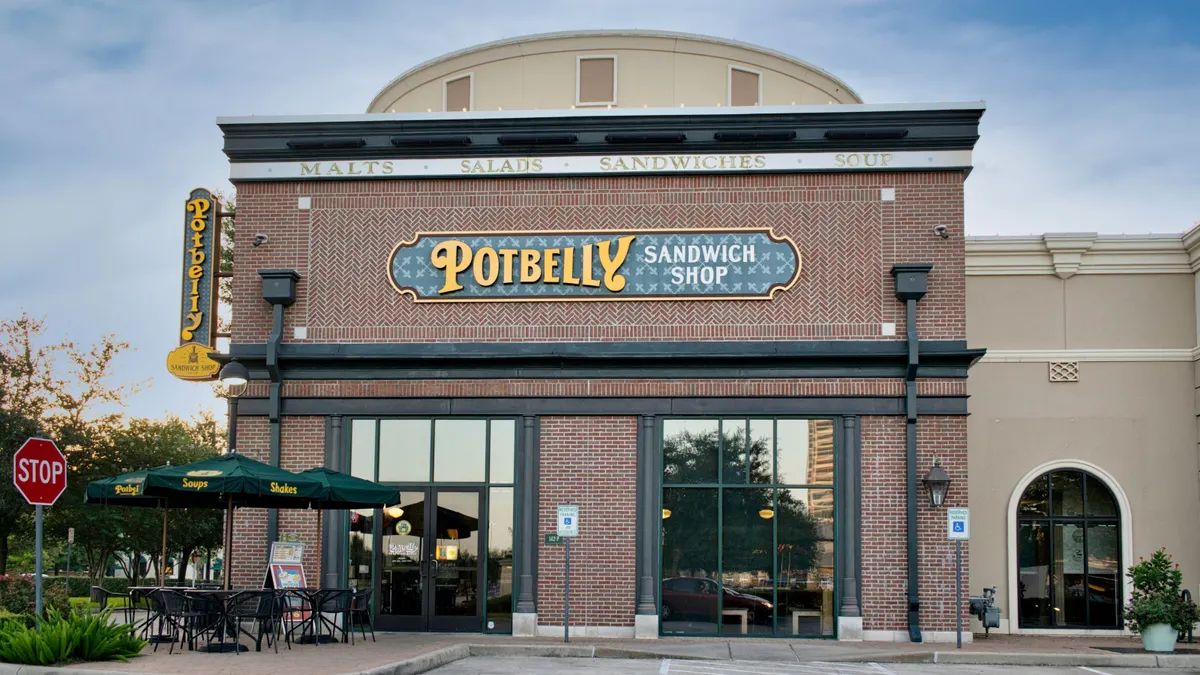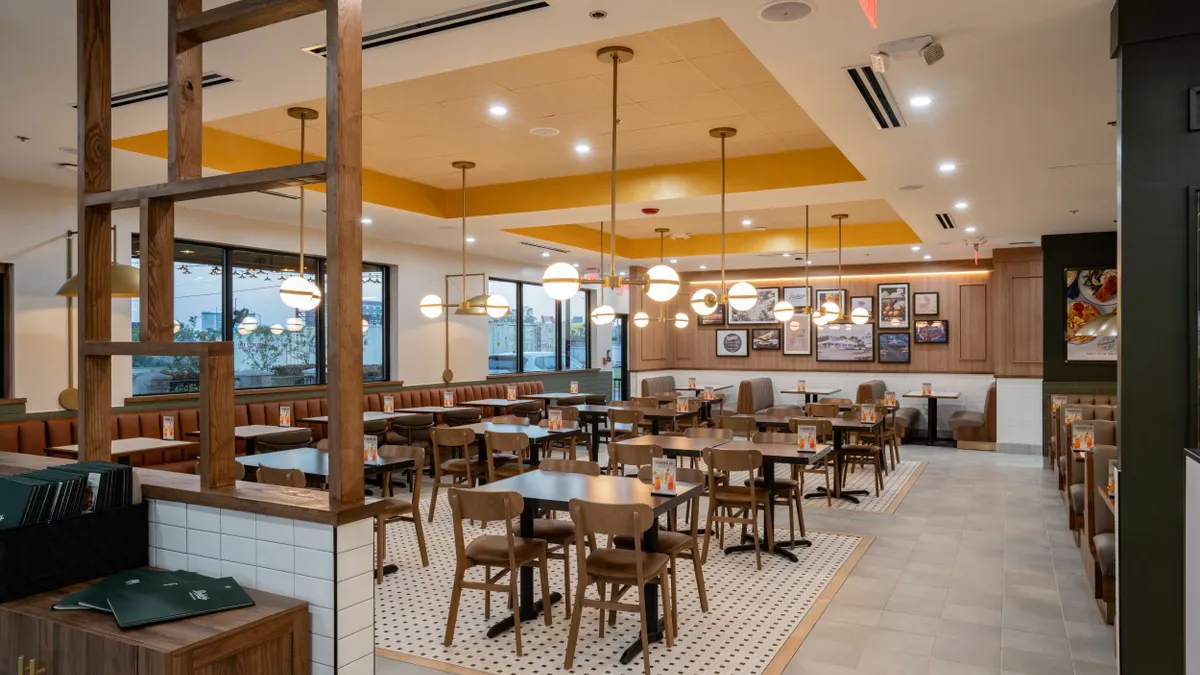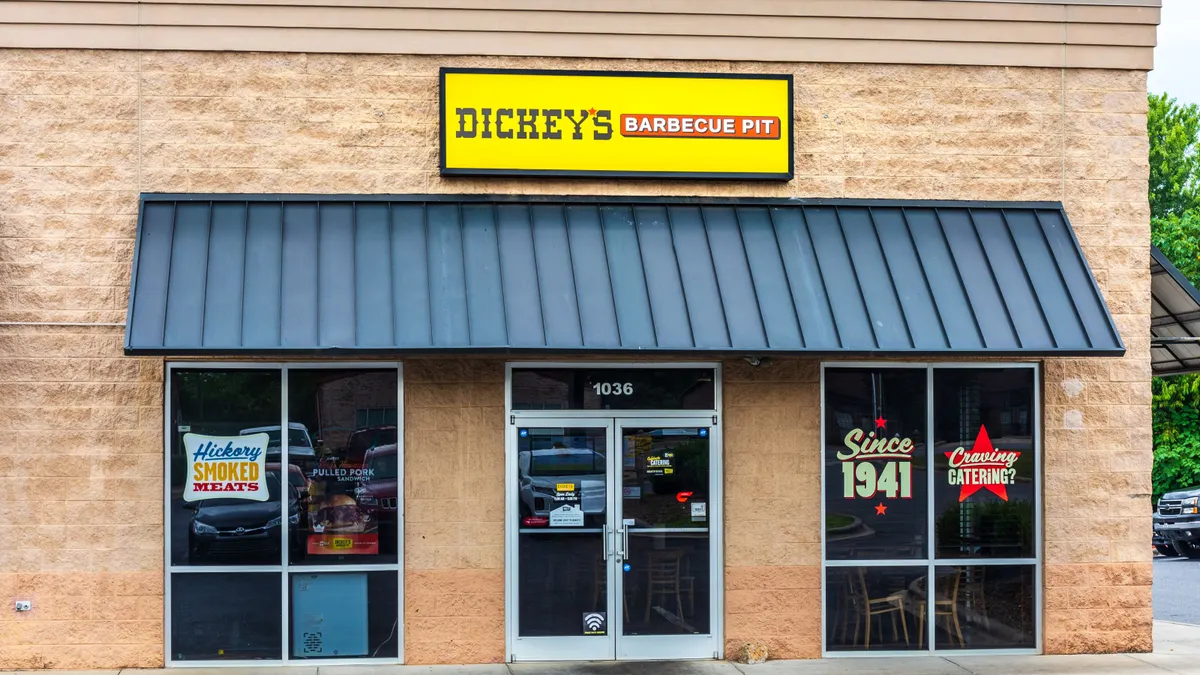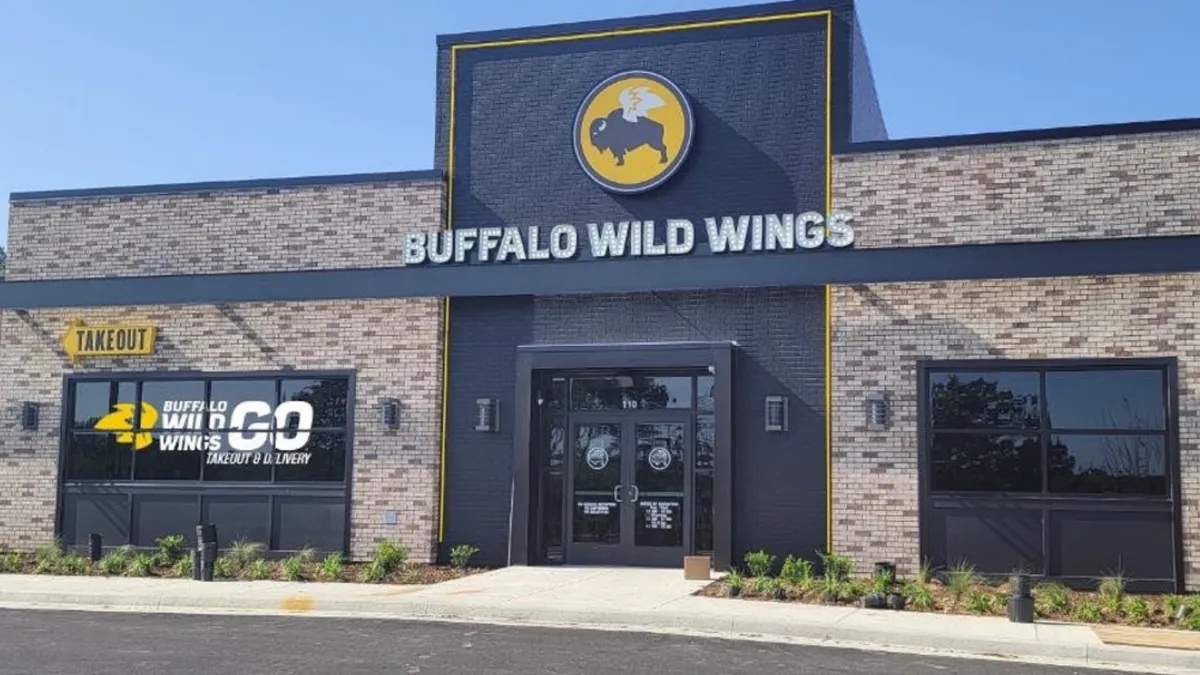High-tech store remodels. Robust marketing campaigns. Brand recognition and diner trust.
These advantages have traditionally distinguished franchisees from independent entrepreneurs — thanks to the deep pockets of legacy parent companies — but during a pandemic, chain operators are just as vulnerable to closure, experts say.
A staggering 20,000 to 30,000 franchise businesses will lose all liquidity in the next month if they don’t get immediate relief, according to the International Franchise Association (IFA). During a 90-day shut down, an estimated 8,000 to 10,000 restaurants will go out of business, according to data from Franchise Market Research and Consulting.
But many franchise operators are now required to offer paid sick leave to employees and weather the impact of that expense alone. It’s a significant financial burden that, when combined with dining room closures and other limitations, could be fatal. Half of small businesses have only enough cash to stay in business without income for 27 days, according to data from the JP Morgan Chase Institute.
“We like to think that franchisees have these huge war chests of money but they’re boot-strapping it, they’re small businesses that don’t have a lot of money,” Jania Bailey, CEO of franchise consultant group FranNet, told Restaurant Dive. “Many [franchisees] will put everything on the line — they do a 401(k) rollover, they invest their retirement fund, take second mortgages on their homes — anything and everything to get that business open. And they scrape together to get it up and operational and get cash flowing positive, and they’re starting to see a little bit of profit and then something like this happens and it just wipes them out.”
Parent company support is key
Some legacy brands have launched intervention plans to try and protect their franchisees from the brunt of coronavirus’ economic impact.
Yum Brands, for example, created a Global Franchise Health and COVID-19 support team to help brand operators survive this disruption, and is granting grace periods for specific near-term payments. The company is also allowing U.S. franchisees defer 2020 financial obligations for remodels and new unit development through the end of the year. Restaurant Brands International is offering franchisees $70 million in cash advancements and deferred rent payments for up to 45 days.
This level of company support is crucial for operators, Nick Powills, restaurant expert and publisher of 1851 Franchise, told Restaurant Dive.
“We’re nowhere near the end of this. The beating brands took in the first two weeks [of coronavirus’ U.S. impact] is only the beginning. Franchisers need to be asking how to keep the lights on for franchisees, which will in turn keep their lights on, too,” he said. “Put your royalties to work, show [franchisees] support and give them as much scaffolding as possible or else you’ll be remembered for the wrong things and you’ll struggle on the other side of this.”
“We’re nowhere near the end of this. The beating brands took in the first two weeks [of coronavirus’ U.S. impact] is only the beginning.”

Nick Powills
Restaurant expert and publisher, 1851 Franchise
Tony Darden, president of 87-unit chain Mooyah Burgers, Fries & Shakes, said that though the company’s operations managers are communicating with franchisees multiple times a day about their concerns — including supply chain management, how to pare down operations, apply for Small Business Administration loans and negotiate with landlords — the situation is challenging.
“Each situation and each restaurant is different. We’re reacting as issues arise … and that’s not our strong point, that’s not how we typically operate,” Darden said. “We have plans and processes in place for everything that [normally] affects the system … but now things are changing and you have to be extremely fluid. … We are trying to ensure every single one of our owners comes out of this on the other side.”
Government aid is a start, but not enough
But franchisees need state and federal aid, too. The scope of this financial crisis is unprecedented, Powills said, because the industry has never seen an economic panic that is connected to people’s health. Even in the wake of 9/11 and the Great Recession, diners were still going out to eat, so closures were much more localized, he said.
Operators can’t look to business interruption insurance as a safety net, either, as most providers added clauses excluding communicable diseases, viruses and bacteria after the SARS/MERS epidemic, insuranceQuotes analyst Erik Josowitz told Restaurant Dive. Many policies also have exclusions for civil authority intervention, or state and municipal governments mandating dining room closures, in this case, he said.
“Most business interruption insurance was designed around fire or storm damage … [and] tangible property being damaged. In this situation … facilities are perfectly fine, but operations are suspended, which isn’t what business interruption insurance was designed for,” Josowitz said.
Some states are pushing back against insurance companies to help independent businesses. New Jersey and Ohio legislatures are attempting to override these policy exclusions, but insurance industry groups are objecting, claiming that policy rules cannot be changed once they are written.
“I’ve never seen anything like this. And the possible impact to these small businesses is not something they can just shake off overnight,” Bailey said.
“I’ve never seen anything like this. And the possible impact to these small businesses is not something they can just shake off overnight."

Jania Bailey
CEO, FranNet
Experts agreed that provisions made for small businesses as part of the $2 trillion coronavirus stimulus package signed into law by President Trump last week is a good first step for restaurant aid, but that the industry needs relief specific to their needs at the state and federal level.
“At the end of the day, [franchisees] have to pay SBA resources back,” Bailey said. “You’re adding debt to small business people who may not be able to service that debt in the future.”
The stimulus package doesn’t offer automatic relief, either, Powills said, and will put a long trail of paperwork on franchisees when they’re already tapped out operationally. In the meantime, the line for SBA loans is tremendous, he said.
“That’s the fallacy of looking at just employee benefits and not realizing if you cripple already hurting employers, everybody loses,” Bailey said. “You cannot love employees and not support employers. … We need to make sure we look at the entire economic picture and support each link.”
The future is uncertain
The closure of small franchisees will eventually impact larger operators as well, Bailey said, because when operators shutter, their supply chains will be disrupted, and that disruption will have a ripple effect up the economic chain.
The U.S. restaurant industry is still in the first economic phase of this pandemic, where operators are simply fighting to maintain cash flow, Powills said. Operators that were already struggling financially won’t survive this level of instability, but it’s unclear what the winning strategies of businesses that survive will be, he said.
“It’s going to be interesting to reflect back on this moment in history. The brands that embrace third-party delivery will probably be the Cinderella stories because they have a ton of cash,” Powills said. “We’re still waiting for [COVID-19] cases to stop rising. We’re looking at Italy as a barometer of what to expect.”
For now, the operators that stand the best chance of surviving are those with drive-thrus and robust off-premise operations, Bailey said. Pizza chains like Domino’s, Papa John’s and Pizza Hut, for example, are actually hiring employees by the tens of thousands amid this crisis because they can handle today’s unprecedented demand for delivery.
Restaurants that launch innovative offerings, like selling ingredients as groceries or creating meal kits, could see a traffic boost in the short-term. But as companies scramble to copy each others’ strategies, the novelty will wear off, Powills said.
Eventually, the franchisees that make it through the coming months will have the opportunity to buy locations that have closed and become available for resale, allowing them to gain investment opportunities in new territories for a fraction of the value, Powills said.
“It will be survival of the fittest,” he said. “We don’t know what industry recovery looks like — there’s so much unknown."


